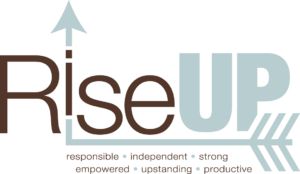Thinking about finances, creating a budget, and planning for the future can be intimidating. But understanding your finances and being proactive about money management is important!
Here is an easy way to start, ask yourself two questions:
What is your why?
Without a reason to do something, we will never do it.
A “why” is the cause, reason, or purpose for which we did/do something, why did/do it.
What are your goals?
A goal is an idea of the future or desired result that a person/group of people envision, plan, and commit to achieve. People endeavor to reach goals within a finite time by setting deadlines. They’re the things you would like to accomplish in your life. Examples of some goals are that many people want to work for and accomplish include getting married and having a family, starting your own business, becoming a big-time executive, or traveling the globe.
Make a vision board! Keep your dreams, desires and goals in front of you. A vision board is a visual representation of your goals. They are typically poster-sized visuals, containing all kinds of images and text that represent things or people whose habits you are working towards!
Let’s define some common financial terms:
INCOME
There are several different types of income including:
Earned Income – This is your day job and most people’s primary source of income.
Business Income – You own a business or are part of a business team.
Interest Income – This is income you make from lending your money out.
Dividend Income – This is money that’s distributed as a result of owning shares of a company.
“Fixed Income” means the income we bring home every pay period. “Variable Income,” means any money that we earn that changes from week to week. In the same way, “Fixed Expenses” mean any money that has to be paid every week, and “Variable Expenses” mean any money that we chose to spend.
A budget is a financial plan for a defined period, often one year. It may also include planned sales volumes and revenues, resource quantities, costs and expenses, assets, liabilities and cash flows.
A good rule to keep in mind: pay yourself first (savings) and then tithe. A tithe is a specific amount (10% of your income) that you give, and an offering is anything extra that you give beyond that. After you’ve tithed and paid all your bills and necessary expenses for the month, you can then use any extra money in your budget to give even more!
Typical Expenses:
Car (loan payments, insurance, registration etc) Rent/Mortgage
Gas
Taxes
College / School books/supplies
Food
Cell Phone Bill
Utility bills (cable, cell, electricity, water, etc.)
Vehicle / Life / Disability / Extended health (or other) insurance
Delay of gratification is the act of resisting an impulse to take an immediately available reward in the hope of obtaining a higher-valued reward in the future. The ability to delay gratification is essential to self-regulation, or self-control. It is always suggested to sleep on big decisions. Don’t make hasty purchases – the point of delayed gratification is to make sure its really something you want, need, or desire.
Debt is an obligation that requires one party, the debtor, to pay money or other agreed-upon value to another party, the creditor. Debt is a deferred payment, or series of payments, which differentiates it from an immediate purchase. Remember! Don’t buy anything you cannot pay for. Nothing is free. If you cannot pay the bill – don’t buy it!
A bank is a financial institution that accepts deposits from the public and creates a demand deposit while simultaneously making loans. Lending activities can be directly performed by the bank or indirectly through capital markets. You will likely use a bank for things like checking and savings accounts. When looking into banks, pay attention to fees and types of accounts, bank cards, and credit cards they offer. Sometimes fees are higher at one bank over another. Remember, banks and credit card companies are businesses too and need to make a profit.
A handy tip is to always keep cash on hand so you physically SEE your money leaving/going out. Sometimes in a plastic or virtual world of money we don’t really think about what we are spending the same way we do when we actually see the bills leaving our hands.
A loan is lending of money by one or more individuals, organizations, or other entities to other individuals, organizations etc. The recipient incurs a debt and is usually liable to pay interest on that debt until it is repaid as well as to repay the principal amount borrowed. Knowing about interest and fees for each loan you look at is very important.
Investments compounding is a great way to make some extra income now, at your age. To invest is to allocate money in the expectation of some benefit in the future. In finance, the benefit from an investment is called a return. Invest in the right things and be patient. (Yahoo finance is a great resource for learning about investments.)
We hope that this workshop recap helps answer common questions about finances! Stay tuned for more Teen Workshops to learn valuable life skills that can set you up for SUCCESS!

